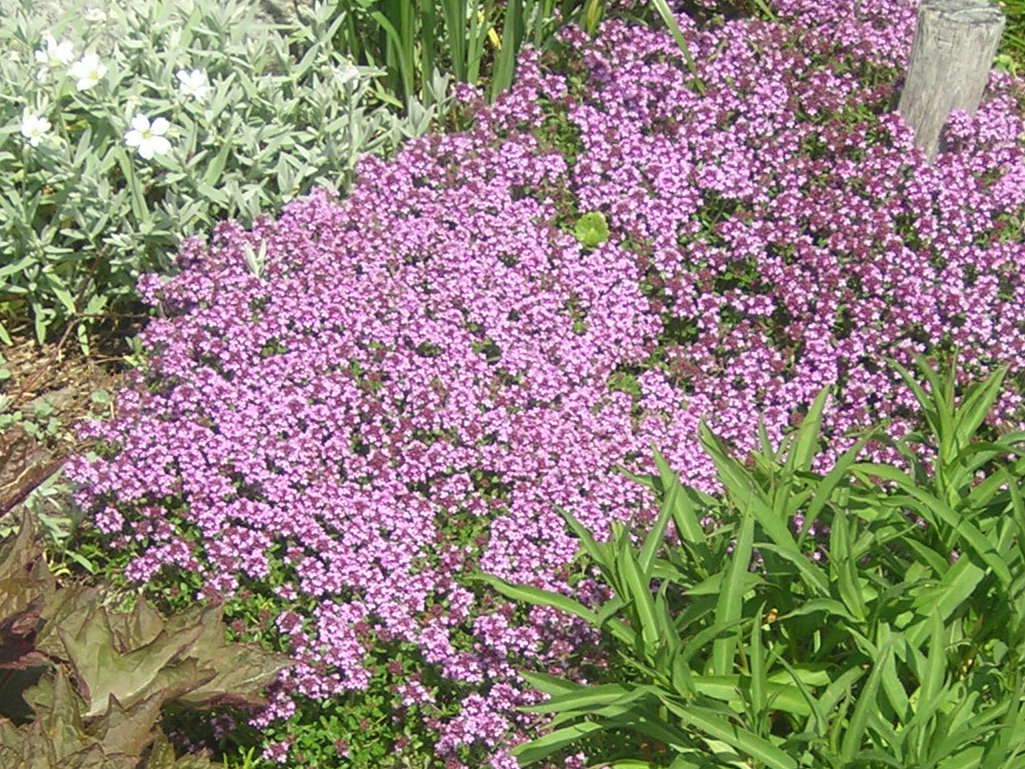Plantain (Plantago major)--is the Saxon waybroad in old herbals, for it thrives beside roadways. Fresh leaves draw out infections, halt bleeding in minor wounds, and ease discomfort from burns and stings.
 Watercress (Nasturtium officinalis)--supplies
a generous amount of vitamin C. Its juice added to water is a tonic to erase
listlessness.
Watercress (Nasturtium officinalis)--supplies
a generous amount of vitamin C. Its juice added to water is a tonic to erase
listlessness.Betony (Stachys betonica)--appears as the fourth herb in later versions of the Nine Sacred Charm. Atterlothe of the original listing defies translation. Betony, however, serves well as a substitute, for it was anciently regarded as a cure for all ills of the body and the soul.

Chamomile (Anthemis nobilis)--never fails to lift the spirits with its sweet scent. Maythen, as it was known to the Saxons, it the “plants’ physicians,” as it revives ailing plants when set near them. Humans enjoy its benefits as well.
Nettle (Urtica dioica)--serves many useful purposes. The leaves staunch bleeding and soothe burns. Its seeds stimulate appetite. Nettle juice is an excellent hair lotion.
Crab Apple (Pyrus malus)--has long been associated with health and renewal. The original wild apple from which all varieties derive is said to promote deep sleep and increase energy.
Chervil (Anthriscus cerefolium)--may possess a powerful brain stimulant. It was once the soverign remedy to restore the will to live.
Fennel (Foeniculum vulgare)--conveys longevity, gives strength and courage while its pleasant aroma discourages evil spirits. Fennel in the diet promotes good eyesight and fights obesity.
*Thyme (Thymus serpyllum)--occurs in other lists of the Nine Sacred Herbs in place of Chervil, and is said to cheer melancholy natures.







No comments:
Post a Comment